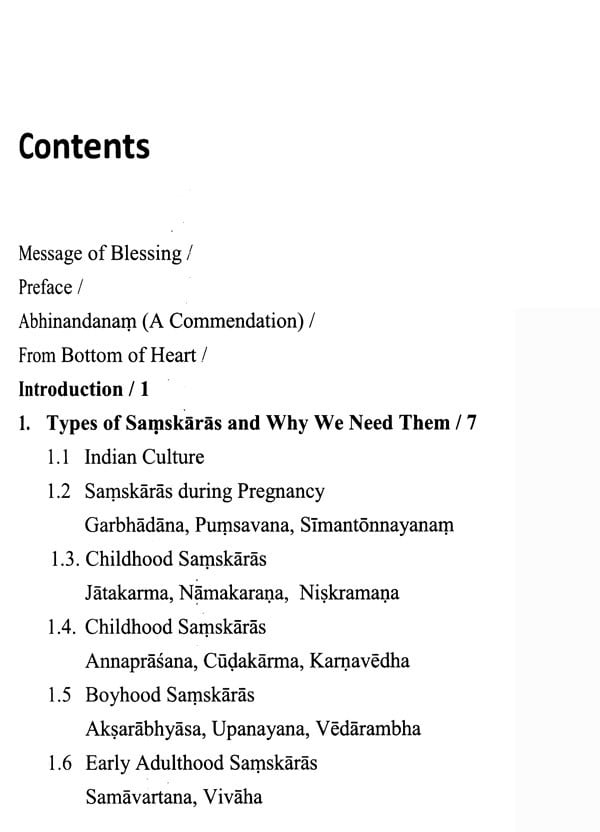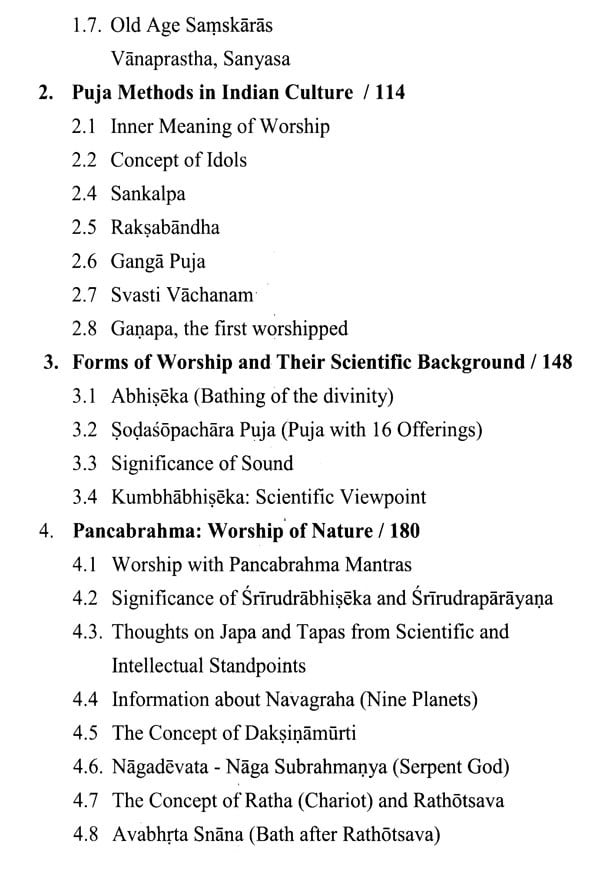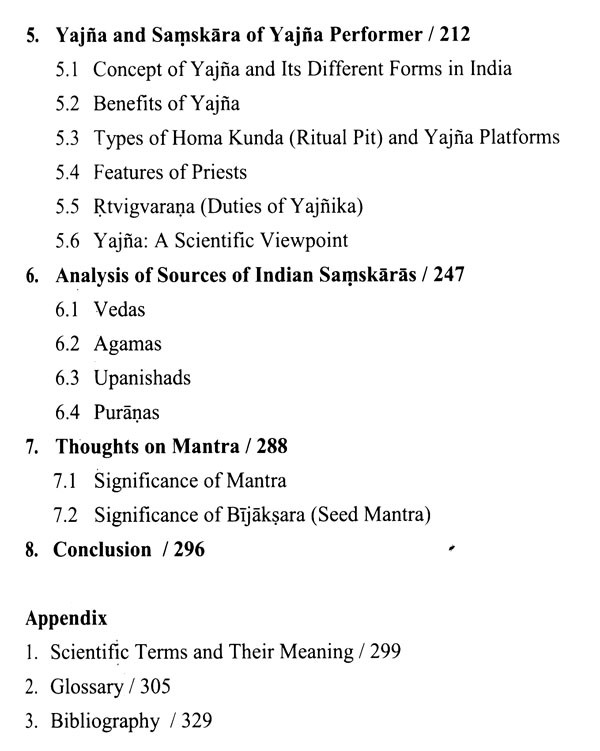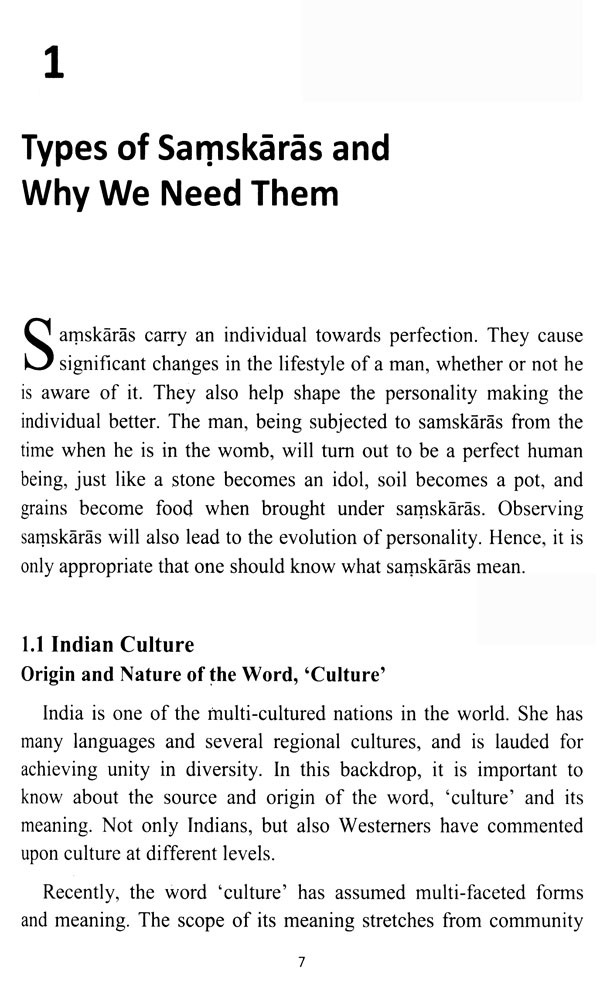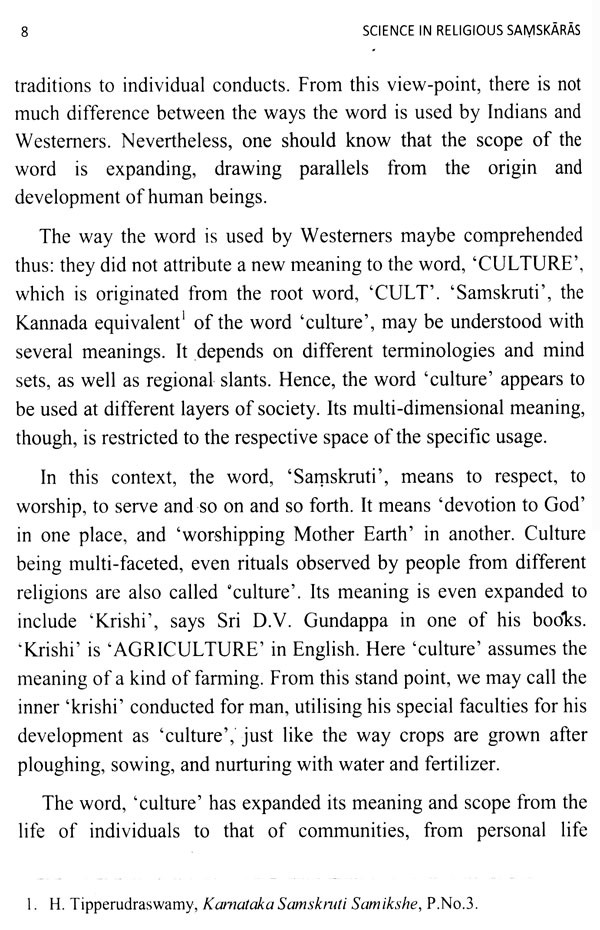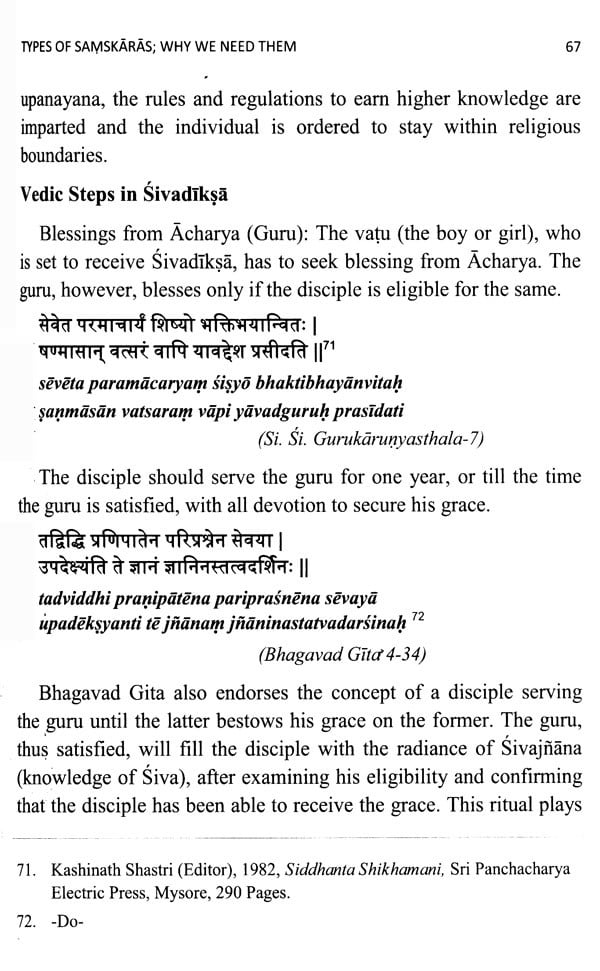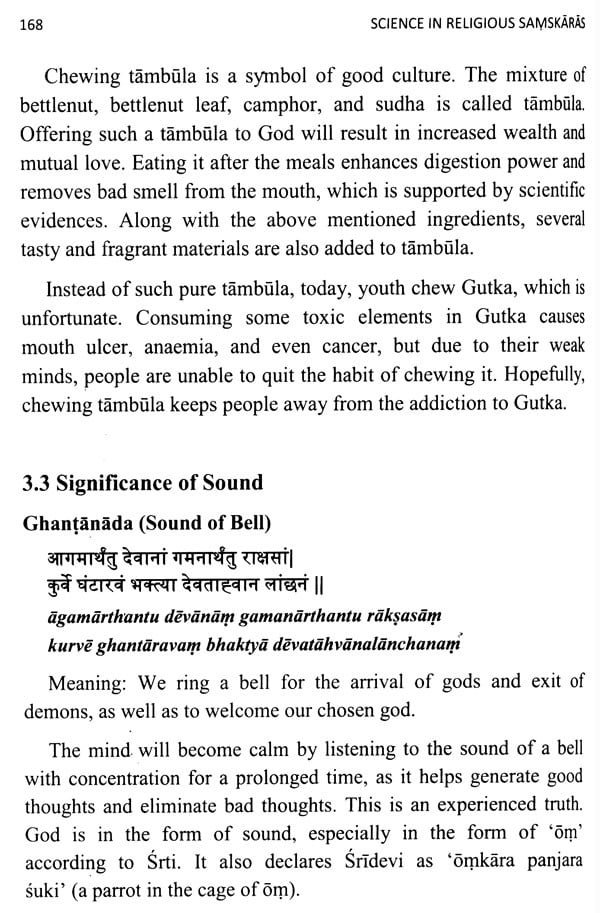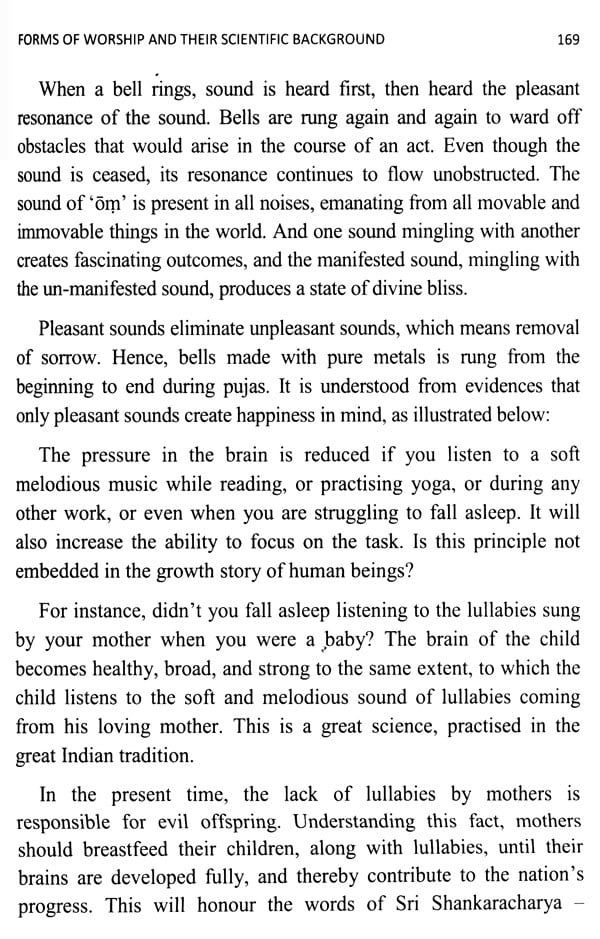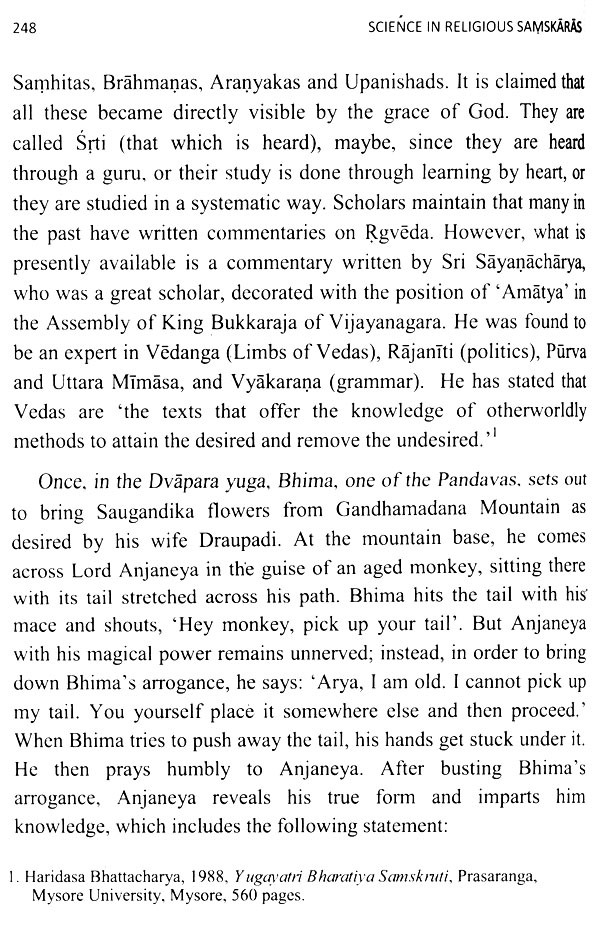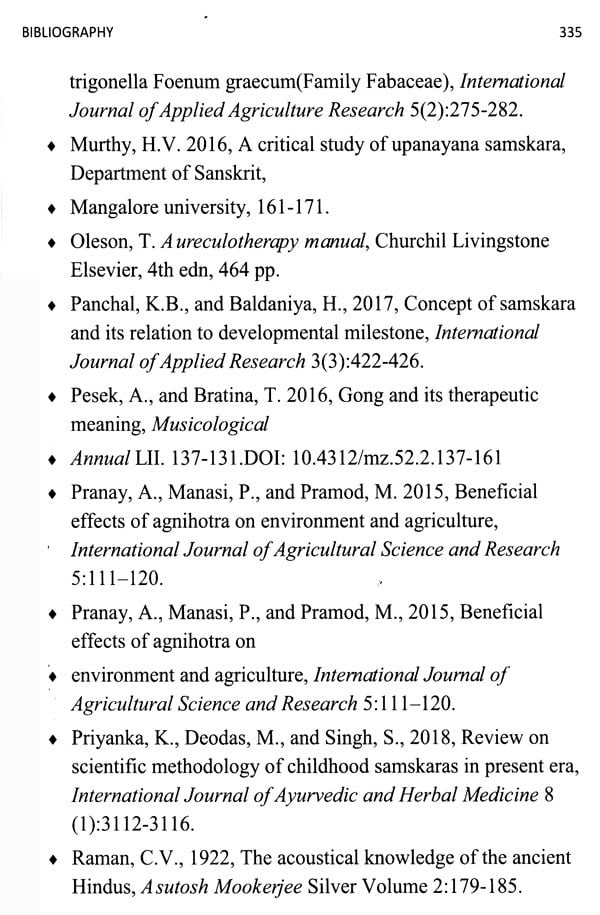
Science in Religious Samskaras
Book Specification
| Item Code: | UBE818 |
| Author: | Marulasiddha Panditaradhya Shivacharya |
| Publisher: | C.C.M. Prakashana |
| Language: | SANSKRIT TEXT WITH TRANSLITERATION AND ENGLISH TRANSLATION |
| Edition: | 2022 |
| ISBN: | 9789195619658 |
| Pages: | 374 |
| Cover: | PAPERBACK |
| Other Details | 8.50 X 5.50 inch |
| Weight | 410 gm |
Book Description
I have been savouring for over the past thirty years the spiritual thoughts and great lectures of Dr. Shivacharya as a devotee of the Matha, and as his close associate. Like me, many of his devotees have wished and requested him that his noble thoughts and knowledge bestowed on him by the Supreme God be made available to society as guidance for the people. As a result, several of his books and articles have been published, being an invaluable gift to the spiritual and cultural traditions of the nation.
Dr. Shivacharya accepted his father as his guru and earned all the knowledge on the strength of the learning from him. He completed his schooling up to the higher secondary level. He then went on to earn a post-graduation degree from the Mysore University, even while heading the VeerapurHirematha, continuing with the tradition of the Chaula Hiriyur Hiremetha. He has received an honorary Doctorate for his thesis, 'Indian Culture and Cultural Traditions' from the Cosmopolitan University of the USA. He has also been honored with a Doctorate of Literature (D.Lit) for his thesis 'A Scientific Study on the Need of Rituals for Personality Development' by the Kannada University, Hampi. The University of Agriculture, Raichur invited and honored him by publishing his book 'The Agriculture of Rishis'. It is a matter of pride that several of his works have already reached the mass of people. His immense knowledge of Veerashaiva literature; his expertise in linguistics; his in-depth study on sculpture and Vastu; his rational analysis of 'Devi Mahatme'; his novel commentaries on meaning of words; and his spiritual concepts are truly laudable. I wish to such a seer, on behalf of all of this land, that he may take up more and more studies in the future.
'Samskara' are not the subject matter to be considered just within the framework of religiosity.
In India, religion has taken many forms, branching into several sects and sub-sects.
**Contents and Sample Pages**

